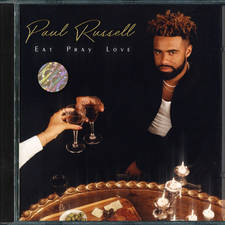Jihadi Bride Guilty Of Helping Birmingham Man To Syria
31 July 2015, 16:44 | Updated: 30 March 2016, 13:50
A would-be jihadi bride has been found guilty of helping a young man from Birmingham to fight in Syria after they struck up a long-distance romance over the internet.
In a series of Skype chats, Angela Shafiq, 22, gave advice to Mohammed Nahin Ahmed about travel documents and how to get past border controls before he left to join rebels in the war-torn country.
In May 2013, Ahmed and his friend Yusuf Sarwar travelled from the UK to Syria, via Turkey, to join the ranks of Islamist rebels fighting the Assad regime.
The pair were arrested on their return in January last year and later pleaded guilty to an offence of preparation of terrorist acts, the court heard.
Shafiq denied committing the same offence between January 1 2013 and May 16 2013, saying her chats with Ahmed - a man she never met - were all ``fantasy''.
But the jury at the Old Bailey found Shafiq, from Hounslow, in Middlesex, guilty after deliberating for less than a day.
In the five months before Ahmed left, he had some fairly intense Skype exchanges with Shafiq under the user name Neon Salam.
Prosecutor Christopher Hehir QC told the jury: ``Although as I have said the two of them never met, the conversations between Angela Shafiq and Nahin Ahmed were quite intense at times.
``They discussed the possibility of marriage, and of Angela Shafiq herself travelling to Syria.
``A continuing issue in the conversations was the fact that Angela Shafiq's mother, quite understandably you may think, would not allow her to go to Syria.''
In January 2013, Ahmed told her he wanted to be a ``mujahid'' or warrior and Shafiq replied that she prayed ``Allah gives you the pleasure of being shaheed (martyr)''.
The following day, she expressed a wish he would come back for her so they could go to Syria together and he responded: ``Lol I'll prbly be deaddddd I cant cme bk ill get arrested Guaranteed Dats y. I talked to a Swedish brudaa who went syriaa. He said da battles get addictive (sic).''
When she spoke of going to Birmingham to see him, Ahmed put her off. He went on to tell her of his plan to go to Syria via Turkey with a friend who he said he was training because he was ``a bit chubby'' - in reference to Sarwar.
Shafiq was accused of helping Ahmed by giving him advice on renewing his passport and suggesting he do a first aid course - ``like in case u get stopped at borders u can show that certificate nd say ur going there to help the ppl.''
The chats tailed off in February 2013 after Ahmed told Shafiq he had received a message from an alternative jihadi bride who wanted to go to Syria.
Three months later, Ahmed tried to contact her as he was about to fly to Turkey, saying he had phoned her twice from his hotel in Heathrow but got no answer.
The next day, she sent him a lengthy reply begging his forgiveness, saying that she was ``crying a lot'' and ``didn't want my emotions to hit you''.
In her defence, Shafiq told jurors that she did not believe Ahmed when he told her about his plan to go to Syria, saying that he used LOL - text speak for laughing out loud - a lot in his messages which made her question whether he was serious.
She said she had no idea when he asked her for a donation for his ``AK'' that meant an AK47 rifle and she thought he talked about being a soldier as a slang term to sound ``hard''.
On their talk about marriage, she said: ``I liked the topic of marriage. I wanted to fantasise about someone wanting me. I didn't feel like in real life anyone wanted to marry me.''
Defending, Richard Thomas quizzed her about Ahmed's message about ``gangster cousins''.
Shafiq said: ``I don't know what's meant by a gangster. To me that's a slang term for boys with baggy pants, that's all.''
Judge Stephen Kramer QC adjourned sentencing for reports on September 8, saying: ``I'm troubled by this young lady.''
He said he hoped that she was aware of the likely sentence that he would impose.
Mr Thomas urged that she be granted conditional bail as the offence was at the very lowest end of the scale, but the judge refused.
He told the jury they may feel he was being rather ``harsh'' but insisted that it was for her own ``best interests''.







